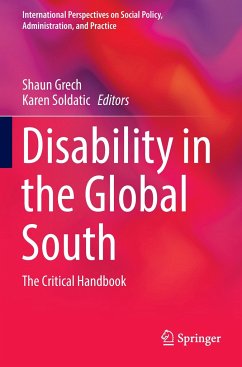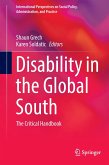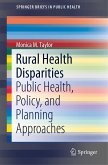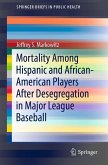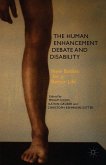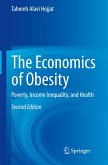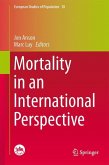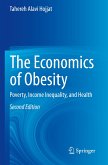This first-of-its kind volume spans the breadth of disability research and practice specifically focusing on the global South. Established and emerging scholars alongside advocates adopt a critical and interdisciplinary stance to probe, challenge and shift common held social understandings of disability in established discourses, epistemologies and practices, including those in prominent areas such as global health, disability studies and international development. Motivated by decolonizing approaches, contributors carefully weave the lived and embodied experiences of disabled people, families and communities through contextual, cultural, spatial, racial, economic, identity and geopolitical complexities and heterogeneities.
Dispatches from Ghana, Lebanon, Sri Lanka, Cambodia, Venezuela among many others spotlight the complex uncertainties of modern geopolitics of coloniality; emergent forms of governance including neoliberal globalization, war and conflicts; the interstices ofgender, race, ethnicity, space and religion; structural barriers to redistribution and realization of rights; and processes of disability representation. This handbook examines in rigorous depth, established practices and discourses in disability including those on development, rights, policies and practices, opening a space for critical debate on hegemonic and often unquestioned terrains.
Highlights of the coverage include:
Critical issues in conceptualizing disability across cultures, time and space The challenges of disability models, metrics and statistics Disability, poverty and livelihoods in urban and rural contexts Disability interstices with migration, race, ethnicity, gender and sexuality Disability, religion and customary societies and practice
·
The UNCRPD, disability rights orientations and instrumentalitie
· Redistributive systems including budgeting, cash transfer systems and programming.
· Global South-North partnerships: intercultural methodologies in disability research.
This much awaited handbook provides students, academics, practitioners and policymakers with an authoritative framework for critical thinking and debate about disability, while pushing theoretical and practical frontiers in unprecedented ways.
Dispatches from Ghana, Lebanon, Sri Lanka, Cambodia, Venezuela among many others spotlight the complex uncertainties of modern geopolitics of coloniality; emergent forms of governance including neoliberal globalization, war and conflicts; the interstices ofgender, race, ethnicity, space and religion; structural barriers to redistribution and realization of rights; and processes of disability representation. This handbook examines in rigorous depth, established practices and discourses in disability including those on development, rights, policies and practices, opening a space for critical debate on hegemonic and often unquestioned terrains.
Highlights of the coverage include:
Critical issues in conceptualizing disability across cultures, time and space The challenges of disability models, metrics and statistics Disability, poverty and livelihoods in urban and rural contexts Disability interstices with migration, race, ethnicity, gender and sexuality Disability, religion and customary societies and practice
·
The UNCRPD, disability rights orientations and instrumentalitie
· Redistributive systems including budgeting, cash transfer systems and programming.
· Global South-North partnerships: intercultural methodologies in disability research.
This much awaited handbook provides students, academics, practitioners and policymakers with an authoritative framework for critical thinking and debate about disability, while pushing theoretical and practical frontiers in unprecedented ways.

